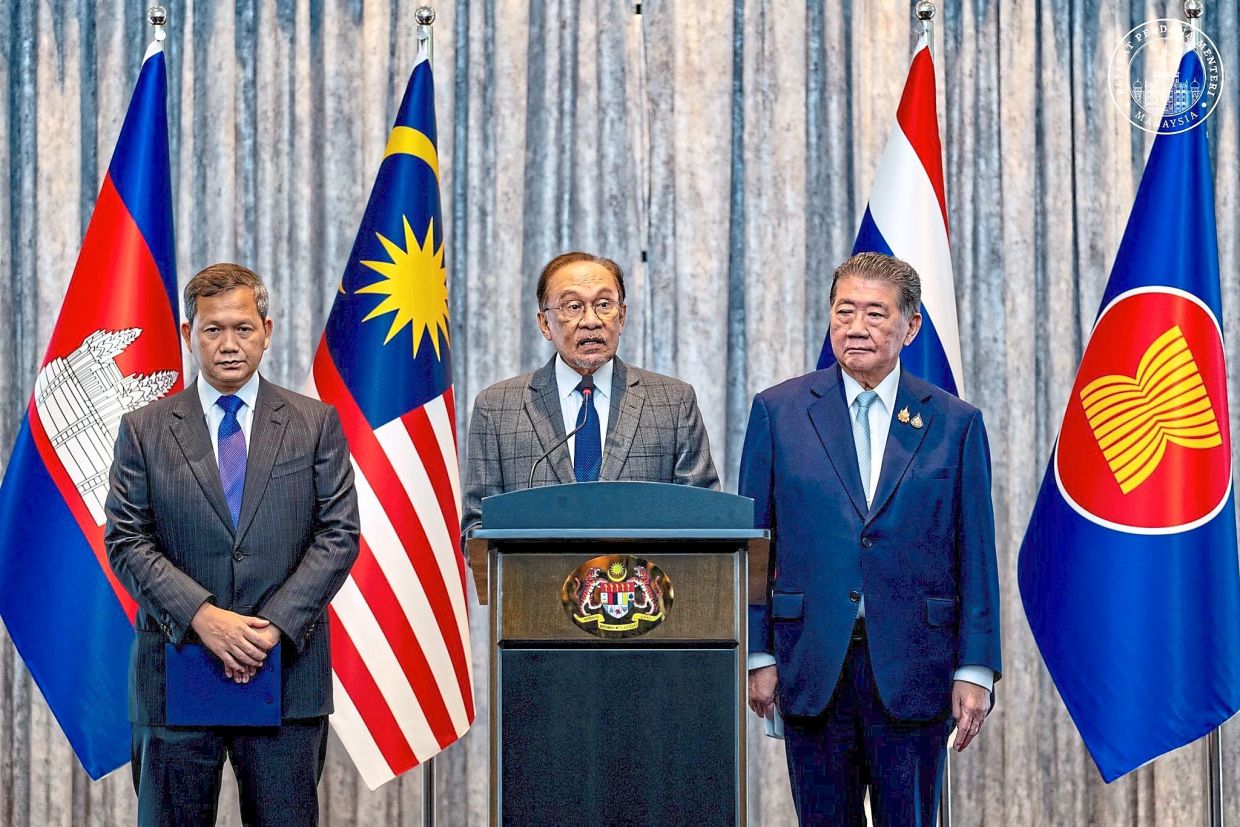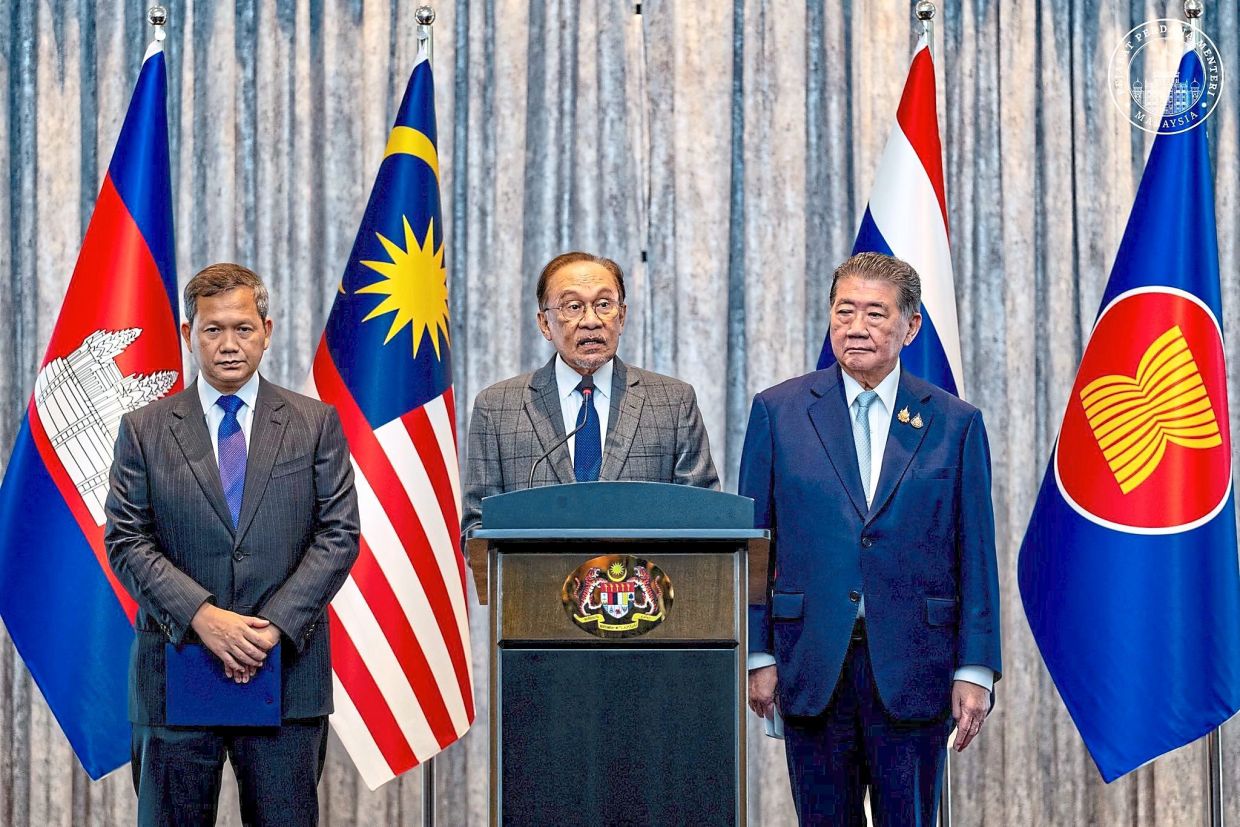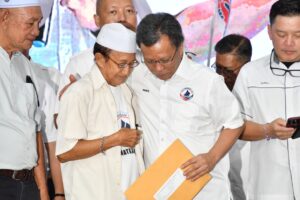
IN today’s fragmented and divisive world, demands for skilled negotiators, those steeped in diplomacy and dialogue as statecraft, should be at a premium. After all, a perfect storm is brewing: global politics are becoming increasingly fraught, and common global issues are being weaponised.
Open conflicts are flaring up in places like Europe and the Middle East, while other regions, such as East Asia, face renewed risks of unintended conflict due to miscalculations over long-standing disputes. Even South-East Asia, long marked by the absence of open conflict between Asean member states, was recently reminded of the dangers of complacency and the need to continuously nurture a culture of peace.
Cross-border issues, such as the climate crisis, demand a cooperative global response, yet nations are unable to look past their immediate interests. A proverbial diplomatic traffic jam confronts us as countries scramble to reach “a deal” to stave off tariff wars.
With true statesmanship, these fraught conditions would be an ideal opportunity for diplomats and negotiators to thrive, demonstrating their unique skills in managing international relations, bridging differences and forging consensus tactfully and respectfully. Unfortunately, the opposite seems to be happening.
Diplomacy is facing headwinds as countries increasingly turn inward, seemingly oblivious to the fact that national goals cannot be achieved in a vacuum. Instead, they require a keen awareness of external dynamics and how they affect a country’s objectives.
Furthermore, multilateral institutions are facing a critical test of their relevance and credibility. They are often seen as disconnected from shifting power dynamics. Complex issues are often oversimplified for headlines, and the popular focus on making “deals” instead of “agreements” highlights a short-term, transactional mindset.
Do professional negotiators and diplomats matter?
The work of a professional negotiator is not one-size-fits-all. Every situation is unique.
The setting can vary, from bilateral to multilateral negotiations. Multilateral settings might involve a few countries, often within a region, or many countries, as seen in the United Nations system.
Bridge-building efforts can also take place within countries, where the term “dialogue” is often preferred over “negotiation”.
It is important to recognise that the resolution of internal conflicts, particularly in South-East Asia, has benefited immensely from the tactful, nuanced and calibrated skills of the region’s diplomats, who are always conscious of hidden tripwires that could halt fragile dialogues.
The subject matter can also vary widely, including political, security, economic, trade, finance and global cross-border issues. To add to the complexity, these subjects are often intertwined, defying clear distinctions between them and between the local, national, regional and global levels.
A country’s role can also differ, ranging from being a party to a dispute, a facilitator or mediator, to a strictly third-party observer focused on minimising risks and maximising opportunities. In all these different circumstances, the professional negotiator offers important, often unquantifiable, skills.
First, a deep understanding of national interests is crucial. Professional negotiators have the ability to clearly identify and, if necessary, recalibrate their country’s national interests on international issues.
They focus on long-term interests rather than short-term, fleeting ones. Their institutional memory allows them to be alert to even the subtlest shifts that could inadvertently cause irreparable harm.
Negotiators also have the capacity to take a comprehensive, unified approach. They are able to develop a whole-of-government, or even whole-of-society, approach in formulating a country’s negotiating position, rather than a fragmented, “siloed” one.
This approach creates a sense of common national ownership and participation, making the country’s position more resistant to the probes of other negotiating parties and ensuring the effective implementation of any agreements reached.
They also possess full knowledge of their country’s “red lines” to adeptly manage changing negotiation dynamics. The real work of negotiation begins after initial positions are presented, it is more than just reading a prepared statement.
Second, professional negotiators are trained to develop an acute knowledge and “feel” of the other side’s position, of their interests and objectives as well as their “red lines”.
They understand the other side’s constraints and how they align or diverge from their own. This awareness is not a sign of weakness, it is crucial to ensure the most efficient (not to overpromise or over-concede for the sake of reaching agreements) and effective (“national” interest becoming synonymous with “common” interest) attainment of the set objectives.
In today’s complex environment, experienced negotiators also discern wider stakeholders and their interests, even if they are not directly involved. This ensures that outcomes are supported and not contested, and that these dynamics work in their country’s favour. Nothing happens in a vacuum.
Third, professional negotiators have a strong appreciation for detailed preparation. They leave nothing to chance. Every step of a negotiation, no matter how small, is prepared for and, if necessary, negotiated over.
The agenda, format, working methods and even seating arrangements matter and can significantly affect outcomes. Unfortunately, such attention to detail, the minutiae of a negotiation process, is sometime mistakenly viewed as archaic and overly bureaucratic.
The truth is, they help draw the proverbial line in the sand, to test resolve before attention turn to the issues of substance.
Finally, the experienced negotiator possesses a range of unquantifiable qualities. These include the ability to “read the room” and sense underlying dynamics, points of convergence and the other side’s readiness to compromise.
They have a keen appreciation for timing, knowing when to reveal a national position or submit fresh proposals. A genuine capacity for empathy allows them to build trust and a comfort level with the other side without being co-opted.
They also know how to agree to disagree respectfully, avoiding excessive celebration of gains that could burn bridges for future negotiations. An almost infinite reservoir of patience and resilience is critical in a battle of will and wit. Negotiators must not be too eager for results or fall into the trap of unilaterally set deadlines.
Ultimately, since all agreements are expressed in words, experienced negotiators are wordsmiths, equipped with a command of language. They must also be seen as trustworthy, reliable and principled individuals whose words can be relied upon.
In our fragmented world, the efficacy and importance of diplomacy as a means to manage relations between states should be beyond doubt.
The skills of the diplomat-negotiator should be in high demand, and a surge in diplomacy is needed. — The Jakarta Post/ANN
Marty Natalegawa is a former Indonesian foreign minister and founder/convenor of the Amity Circle, which focuses on the promotion of diplomacy, negotiation and dialogue.






